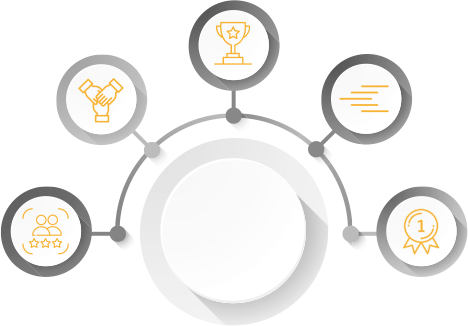
Customer Focus
Team Work
Championing
Change
Agility
Pride
NES Values
Why NES
The NES System is an award-winning smart grid infrastructure solution, based on Open Smart Grid Protocol (OSGP). NES’ smart grid technology is used in nearly 40 million smart meters and other smart end devices around the world. NES offers industry leading security built into its three tier Patagonia Platform. The most reliable smart metering solution in the industry, delivering 99.8% daily availability of meter data. The NES System offers a unique power line technology that enables grid mapping, automatic topology management, and many more low voltage grid applications. NES has more than 100 existing smart metering / smart grid projects and pilots in more than 25 different countries.
Our Vision
We share your vision of enabling the transition to smart sustainable energy.
Our Mission
NES was formed as a result of the spinoff of Echelon Corporation’s Grid Modernization Division in October 2014. However, the beginnings of NES go back much further than October 2014. Echelon Corporation was founded in 1988 by A. C. "Mike" Markkula, an original principal in Apple Computer, and led by M. Kenneth Oshman, one of the four founders of Rolm Corporation. Mike Markula was an angel investor for Apple Computer and also the second CEO of Apple Computer. The original vision for computer networking - connecting all kinds of devices ranging from industrial components to refrigerators and thermostats in the home - was ahead of its time. It ultimately found expression in systems that insure efficient energy use, known today as the “smart grid” and “IOT or the Internet of Things.” Echelon started as a private company that later successfully completed a public offering in July 1998.
NES has more than 20 years of experience working with utilities companies worldwide to supply the infrastructure for automation and value-added services for a broad range of applications. Ever since its birth, NES has been deeply involved in the world’s leading networked smart metering system deployments for utilities and DSOs, including more than 100 smart metering / smart grid projects and pilots in more than 25 different countries. In June 2000, Echelon entered into a research and development agreement with Enel, the world’s largest publicly traded utility, under which we integrated our PLC technology into Enel’s remote metering project in Italy. In this project, the largest meter replacement and upgrade project ever undertaken in the world, Enel replaced its more than 30 million existing stand-alone electricity meters with powerline communicating solid-state meters. Our NES System builds upon the same core PLC communications technology, data concentrator technology and open standards employed in Enel’s Contatore Elettronico project and provides utilities with an extremely cost-effective system that can be deployed quickly to deliver immediate cost savings and operational improvements.
In September 2002, Echelon began a technology trial with Continuon Netbeheer, a leading Dutch utility grid operator and subsidiary of the Dutch utility Nuon, now known as Alliander. The initial trial progressed to a larger deployment of the initial NES system, including the first of its kind joint deployment of smart electric meters and smart gas meters on the same communications infrastructure, with full connectivity through to Continuon’s information systems and business processes. Following these projects, NES has worked on numerous advanced smart grid meter deployments with large utilities such as Vattenfall and E.ON in Sweden, Fortum (Caruna) in Finland, Duke Energy in the U.S, Tauron in Poland, SEAS-NVE (Cerius), NRGi (Konstant), EnergiMidt (Eniig) and ELRO in Denmark, and Alliander in the Netherlands as well as numerous other deployments and trials with utilities throughout the world. Today, NES’ smart grid technology is used in more than 40 million smart meters and other smart end devices around the world.
In the early stages of its existence, the NES System was composed primarily of Smart Meters, Data Concentrators and a head-end data collection system. The collection of devices and software tools that comprise the NES System has expanded since that time. In 2017, the Patagonia Energy Applications Platform (EAPTM) was launched with two applications in hand: Grid Navigator and Grid Flow. Grid Navigator is the analytics foundation of the Energy Applications Platform and provides the essential visibility of the Low Voltage grid while Grid Flow allows utilities to take preventive action based on insights related to power quality issues and load imbalances. Two new applications, Grid Watch and Grid Operations, were added to the EAP suite in 2018 to provide security teams with clear indicators of cyber threat and attack and support utilities in achieving the desired level of operational competence quickly.
These smart grid applications followed the introduction of OSGP (Open Smart Grid Protocol) Modules. OSGP Modules vastly expanded the capacities of the NES system by providing the capacity to transform basic electric meter and devices into smart, communicating meters capable of interoperating with the Networked Energy Services (NES) system in much the same fashion that meters manufactured by NES do. As part of this effort, the European Telecommunications Standards Institute (ETSI) published the Open Smart Grid Protocol (OSGP). This specification, based largely on the way the NES system is designed, defines an open standard for smart grid device communication on networks such as the NES System, providing even more opportunity for the NES system to grow.
NES has continuously focused on improving and expanding its features and portfolio of products over the years. Some examples include a highly advanced Distributed Control Node that offers significant improvements over the earlier Data Concentrator models, new Generation of Smart Meters, and new tools to assist with the deployment and operation of the system.
NES looks forward to continuing to evolve and improve these products to offer the best and most efficient smart grid networking options possible.
NES was formed as a result of the spinoff of Echelon Corporation’s Grid Modernization Division in October 2014. However, the beginnings of NES go back much further than October 2014. Echelon Corporation was founded in 1988 by A. C. "Mike" Markkula, an original principal in Apple Computer, and led by M. Kenneth Oshman, one of the four founders of Rolm Corporation. Mike Markula was an angel investor for Apple Computer and also the second CEO of Apple Computer. The original vision for computer networking - connecting all kinds of devices ranging from industrial components to refrigerators and thermostats in the home - was ahead of its time. It ultimately found expression in systems that insure efficient energy use, known today as the “smart grid” and “IOT or the Internet of Things.” Echelon started as a private company that later successfully completed a public offering in July 1998.
NES has more than 20 years of experience working with utilities companies worldwide to supply the infrastructure for automation and value-added services for a broad range of applications. Ever since its birth, NES has been deeply involved in the world’s leading networked smart metering system deployments for utilities and DSOs, including more than 100 smart metering / smart grid projects and pilots in more than 25 different countries. In June 2000, Echelon entered into a research and development agreement with Enel, the world’s largest publicly traded utility, under which we integrated our PLC technology into Enel’s remote metering project in Italy. In this project, the largest meter replacement and upgrade project ever undertaken in the world, Enel replaced its more than 30 million existing stand-alone electricity meters with powerline communicating solid-state meters. Our NES System builds upon the same core PLC communications technology, data concentrator technology and open standards employed in Enel’s Contatore Elettronico project and provides utilities with an extremely cost-effective system that can be deployed quickly to deliver immediate cost savings and operational improvements.
In September 2002, Echelon began a technology trial with Continuon Netbeheer, a leading Dutch utility grid operator and subsidiary of the Dutch utility Nuon, now known as Alliander. The initial trial progressed to a larger deployment of the initial NES system, including the first of its kind joint deployment of smart electric meters and smart gas meters on the same communications infrastructure, with full connectivity through to Continuon’s information systems and business processes. Following these projects, NES has worked on numerous advanced smart grid meter deployments with large utilities such as Vattenfall and E.ON in Sweden, Fortum (Caruna) in Finland, Duke Energy in the U.S, Tauron in Poland, SEAS-NVE (Cerius), NRGi (Konstant), EnergiMidt (Eniig) and ELRO in Denmark, and Alliander in the Netherlands as well as numerous other deployments and trials with utilities throughout the world. Today, NES’ smart grid technology is used in more than 40 million smart meters and other smart end devices around the world.
In the early stages of its existence, the NES System was composed primarily of Smart Meters, Data Concentrators and a head-end data collection system. The collection of devices and software tools that comprise the NES System has expanded since that time. In 2017, the Patagonia Energy Applications Platform (EAPTM) was launched with two applications in hand: Grid Navigator and Grid Flow. Grid Navigator is the analytics foundation of the Energy Applications Platform and provides the essential visibility of the Low Voltage grid while Grid Flow allows utilities to take preventive action based on insights related to power quality issues and load imbalances. Two new applications, Grid Watch and Grid Operations, were added to the EAP suite in 2018 to provide security teams with clear indicators of cyber threat and attack and support utilities in achieving the desired level of operational competence quickly.
These smart grid applications followed the introduction of OSGP (Open Smart Grid Protocol) Modules. OSGP Modules vastly expanded the capacities of the NES system by providing the capacity to transform basic electric meter and devices into smart, communicating meters capable of interoperating with the Networked Energy Services (NES) system in much the same fashion that meters manufactured by NES do. As part of this effort, the European Telecommunications Standards Institute (ETSI) published the Open Smart Grid Protocol (OSGP). This specification, based largely on the way the NES system is designed, defines an open standard for smart grid device communication on networks such as the NES System, providing even more opportunity for the NES system to grow.
NES has continuously focused on improving and expanding its features and portfolio of products over the years. Some examples include a highly advanced Distributed Control Node that offers significant improvements over the earlier Data Concentrator models, new Generation of Smart Meters, and new tools to assist with the deployment and operation of the system.
NES looks forward to continuing to evolve and improve these products to offer the best and most efficient smart grid networking options possible.

Declaration of Recyclable Products
NES has active programs focused on compliance with EU environmental laws. In addition, as part of our design efforts, we strive to make use of recyclable materials wherever possible and to minimize internal power consumption. Some examples demonstrating NES’s use of recyclable materials in NES meters include the meter cover and terminal block:
- The meter cover is made of ABS/PC plastic, and is recyclable.
- The terminal block is made of polycarbonate plastic (with brass inserts), and is also recyclable.
In fact, based on the weight of NES meters, approximately 80% of the meter is recyclable. In addition, NES uses recycled, recyclable, and/or reusable materials where practical for our product packaging and shipping.
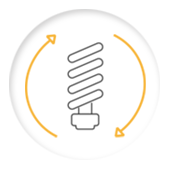
Reducing Energy and Waste
NES encourages recycling both in the office and at home including recycling of computers and other electronics as well as paper and other office material. NES promotes and supports energy efficiency and energy management.
In addition, NES’s technology and products enable smart energy solutions across a wide range of markets, including commercial buildings, smart homes, industrial plants, mining operations, schools, streetlights, warehouses, electric vehicle charging, solar farms, and advanced metering infrastructures.
Our corporate headquarters in San Jose, California, is proof that we practice what we preach. The building's key subsystems are integrated into one simplified control network that provides energy management services that assist in minimizing energy.
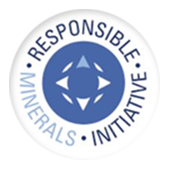
Conflict Minerals Policy Statement
Minerals mined in the Democratic Republic of Congo (DRC) and adjoining countries may be making their way into the electronics industry supply chain.
Some mining operations in the DRC have been linked to poor labor and environmental practices, and there is evidence that some mining and transportation of minerals in the Eastern provinces of the DRC are funding conflict in the country by funding illegal armed groups.
As part of the Dodd-Frank Wall Street Reform and Consumer Protection Act, the United States Securities and Exchange Commission (SEC) passed legislation which requires U.S. companies to report on the origin of these conflict minerals including tin, tantalum, tungsten and gold, often referred to as 3TGs.
At NES we are proud to announce we comply with the Conflict Minerals Policy of the SEC and the requirements of the Responsible Minerals Initiative.
NES SUSTAINABILITY PLAN
Introduction
Networked Energy Services’ (NES) vision is to offer industry leading, high performing, cost effective and sustainable smart grid solutions with our proven and open 3 tier, multi-application platform.
For NES, this means using innovation to embed the concepts of eco-sustainability and digital inclusion into both our technology and throughout our business as an entity to enable the most efficient, reliable and secure delivery of energy for utilities.
We are committed to sustainable value creation and delivery by aligning our business strategy to meet societal needs while reducing environmental impact and advancing social development. This commitment is embedded in our company at every level:
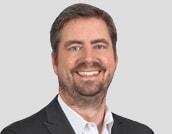 Andy Robinson Chief Technical Officer & VP Engineering
Andy Robinson Chief Technical Officer & VP Engineering As the Chief Operating & Technology Officer for NES, Andy Robinson is responsible for the engineering department and the technical vision for NES. Andy works directly with development groups to determine product strategy, identify new technologies and ensure best practices in Design for Manufacturing (DFM) and Design for Reliability (DFR).
Andy has been a key participant in many industry firsts, such as the first high volume Power Line Communications deployment, and has spent the last 25 years developing the world’s most advanced AMR/AMI/Smart Grid Systems leading to over 40 million meters successfully deployed in the UK, Northern/Central Europe, North America, Russia, South America and Australasia. He held the roles of program manager, lead designer and manufacturing consultant for ENEL in Italy, first developing and then deploying one of the world’s largest and most successful grid modernization programs, before joining Echelon in 2003 and helping establish NES as a worldwide leader in Smart Grid technology He has participated in the creation of several international metering standards and holds multiple patents in the field of metering and instrumentation. Andy has a Bachelor of Science Degree with Honors in Electronics and Communications Engineering from the University of Nottingham in the United Kingdom.
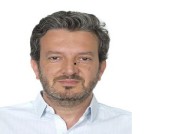 Ibrahim Yaghi Chief Financial Officer
Ibrahim Yaghi Chief Financial Officer As Chief Financial Officer for NES, Ibrahim
is responsible for all of NES’ global finance functions and activities, mergers
and acquisitions, investor relations, and ERP. He is also in charge of
identifying inefficiencies, implementing cost-reduction measures and ensuring
that resources were allocated correctly to guarantee the financial health of
the organization. Ibrahim holds an MBA and BS from Universite Saint Joseph, as well
as a Masters in Finance from Ecole Superieur de Commerce de Paris. He has twenty
years of finance and operations leadership in high growth global companies,
overseeing all aspects of corporate finance and business operations including
strategic planning, treasury, accounting, investor relations, mergers and
acquisitions, global supply management, retail and wholesale sales and real
estate functions.
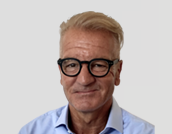 Mike Weiss Chief Sales Officer
Mike Weiss Chief Sales Officer As Chief Sales Officer, Mike Weiss has an overall responsibility for driving NES’s sales and go to market efforts globally. He is the outward face of the business with focus on ensuring success with the existing customers and partners, winning new business, and increasing company’s relevance in the utility sector’s Digital Transformation.
Mike has over 20 years of experience in moving sales organizations to a software and service model and will play a crucial role in creating NES’ future sales strategy. He has a vast amount of experience in changing business models for global companies to help them participate in the Smart Grid Market. Mike joined NES after a very successful career in our industry with Elster / Honeywell. Prior to that, he held senior sales and general management positions with Avaya, Tenovis, and Xerox. Mike holds a Diploma in Business Administration at University of Germany.
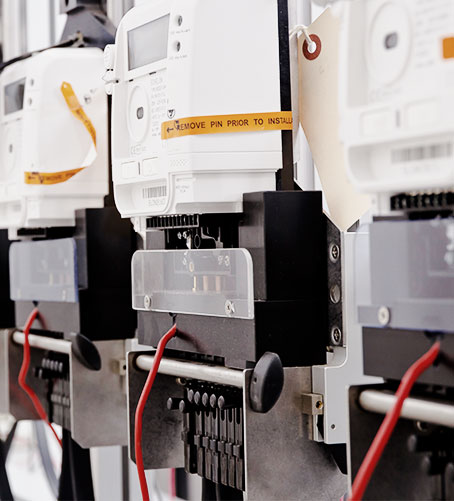

Quality
ISO 9001:2015
NES’s goal is to provide products and services that fully satisfy customer, industry, and statutory and regulatory requirements. NES has implemented its Quality Management System (QMS) to ensure that these requirements are completely met. From order entry through design, manufacturing, and support services, activities are controlled in accordance with the QMS.
NES’s QMS complies with the international standard ISO 9001. The ISO 9001 standard is the world’s most widely recognized quality management system (QMS) certification. ISO 9001 sets out the criteria for a quality management system and is based on a number of quality management principles including a strong customer focus, motivation and commitment of top management, a process approach, and continual improvement.
NES is proud to have achieved certification, and is committed to continued excellence and maintaining ISO certification.
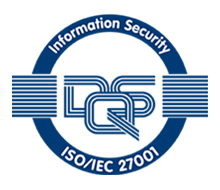
Information Security
ISO 27001:2013
NES’s goal is to ensure the products we produce maintain the highest security standard to protect customers and partners.
There are many operational benefits in having an ISMS in place, including:
• Optimization of NES operations with clear responsibilities being established.
• Increased protection of internal development and maintenance resources.
• Protection of revenue streams, company profitability and improvement of NES business resilience.
• Ensuring the supply of goods and services to customers/partners and improving their confidence in NES as a reliable, trusted partner.
You might be interested in:
































